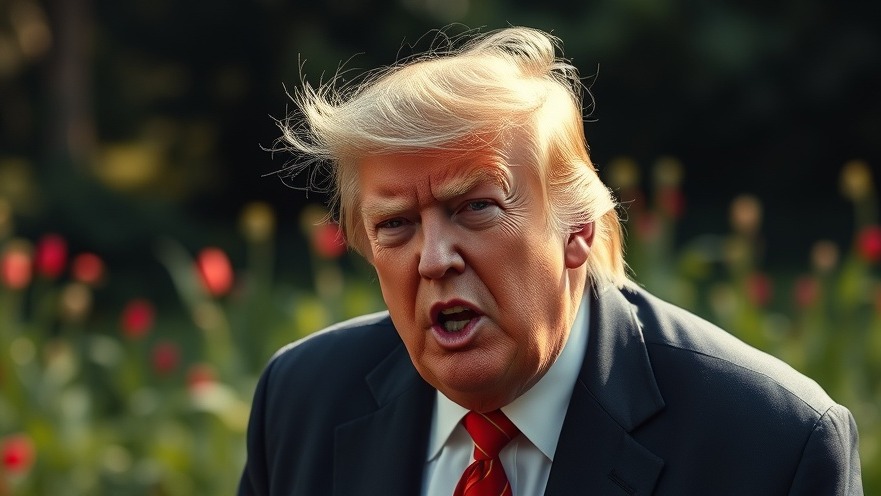
The Turbulent Landscape of Trump's Tariffs: Legal Battles Ahead
The recent appeals court ruling declaring most of Trump's tariffs illegal has sent shockwaves through financial markets and political circles alike. This decision is significant not just for its immediate economic implications but also for its potential to reshape U.S. trade policy going forward. The appeals court's decision lends credence to the growing concerns that these tariffs may not withstand legal scrutiny, paving the way for a Supreme Court showdown later this fall.
In BREAKING NEWS: Appeals Court Just Rules Most Of Trump's Tariffs Are Illegal—Here's What Comes Next, the discussion dives into the legal implications of the tariffs, exploring key insights that sparked deeper analysis on our end.
Contextualizing the Ruling: What Led to This Decision?
Trump's tariffs, designed to protect American manufacturers from foreign competition, particularly from China, have faced intense scrutiny since their inception. Critics argue these tariffs have contributed to rising consumer prices and strained international relations. Observers note that the ruling could be seen as a judicial backlash against protectionist policies that have not delivered on their promises. As this legal saga unfolds, understanding the historical context becomes crucial, especially the bipartisan political landscape that influences tariff policies.
Market Reactions: Immediate Impacts of the Ruling
Following the appeals court announcement, financial markets reacted swiftly. Bitcoin, often viewed as a barometer for risk assets, surged, indicating renewed investor confidence in emerging markets. The connection between tariff policies and risk assets cannot be overstated; the fate of one often hinges on the other. As such, investors are closely monitoring how upcoming Supreme Court decisions could affect not only tariffs but also broader economic conditions, including inflation and market stability.
Future Predictions: What Lies Ahead for Tariffs?
As the U.S. heads toward a pivotal Supreme Court hearing, experts are divided on the likely outcomes. Some predict a ruling that reinforces the appellate court's decision, while others speculate that the conservative leanings of the Supreme Court might sway in favor of upholding the tariffs. The ruling's timing, coming just before critical elections, also raises questions about political motivations and the broader implications for U.S.-China relations.
Broader Implications: Tariffs and Domestic Economy
The ruling serves as a stark reminder of how closely intertwined legal systems, international trade laws, and domestic economic policies are. As tariffs affect costs in production, which can trickle down to consumers, the implications are dire for the average American. A significant consideration is the impact on jobs, particularly in manufacturing sectors that depend heavily on international trade. Observing how local economies respond to these developments is essential for understanding the ruling's long-term effects.
Take Action: Stay Informed on This Ongoing Issue
With crucial decisions looming on the horizon regarding U.S. tariffs, it's imperative to remain informed about ongoing developments in this space. Follow trusted news sources for timely updates and insights that can help you navigate the complexities of the legal landscape surrounding these tariffs. Participating in discussions and advocating for informed policymaking can also amplify public interest in an area that affects so many aspects of American life.
As we approach a potential 'Halloween showdown' at the Supreme Court regarding these tariffs, we encourage our readers to engage with the latest updates and analyses regarding America's economic policy landscape.
 Add Element
Add Element  Add Row
Add Row 



Write A Comment